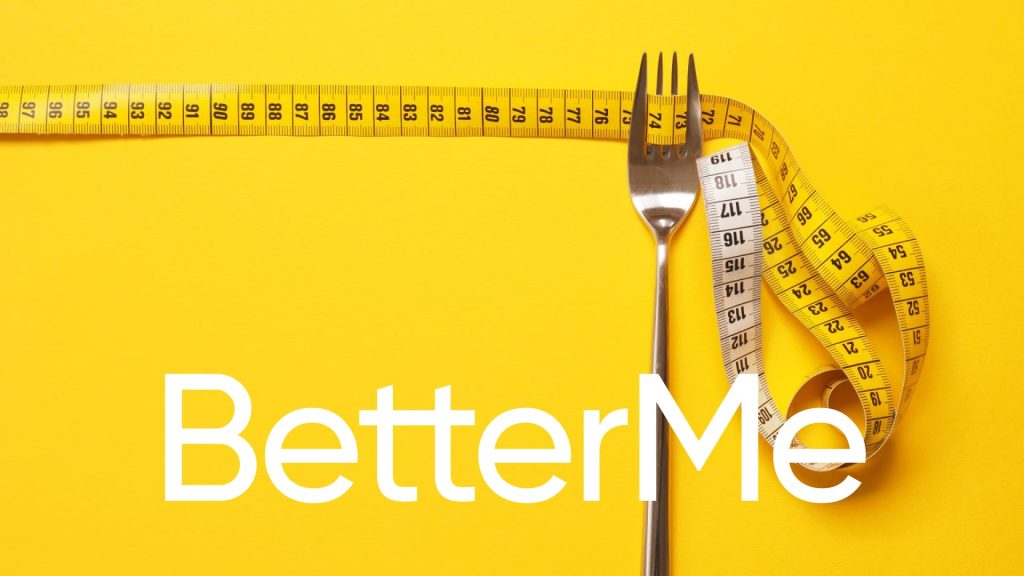If you have been dieting for a while or are just beginning to cut your calories for weight loss, you may have heard several warnings from your friends, doctor, or dietitian about starvation mode. From the explanations given you may be left wondering ‘is starvation mode real?’ or are the people filling your mind with some unfounded facts.
Get your personalized
meal plan!
If this is you, then do not fret. In today’s article we shall be shedding light on this matter as we tackle some frequently asked questions such as ‘ is starvation mode when dieting real?’, is starvation mode in human real or is the science only based on animal studies?’, and signs of starvation – factors to watch out for, among others.
Is Starvation Mode Real?
Yes, it is; but before diving into this heated debate about the evidence of starvation mode in humans, let’s first discuss the starvation diet.
What is a starvation diet? While this is not an ‘official diet’ like veganism, keto, vegetarianism, paleo, etc., it is an eating plan where the person in question chooses to severely restrict their calorie intake, hoping to lose weight from doing this.
According to the USA dietary guidelines the number of required calorie intake per person is dependent on factors such as their age, sex, height, weight, and level of physical activity (1). While considering weight loss, Harvard Medical School takes all these factors into consideration and suggests that in a calorie deficit diet, food energy intake should not fall below 1,200 and 1,500 in women and men, respectively.
Anyone on a starvation diet is most likely not eating enough to sustain themselves and lose weight.
Read More: Unhealthy Weight Loss Can Undermine Your Health! Learn Safe Ways To Shed Pounds

What Is Starvation Mode?
Starvation mode, also known as metabolic damage, is the body’s natural and physiological response to long-term calorie restriction. When you eat too little for too long your body responds to this restriction by reducing how many calories you expend throughout the day. Your body does this to help maintain the energy balance between calories in and calories out in order to prevent death from starvation.
In more scientific terms, starvation mode may also be known as adaptive thermogenesis – the body responding to low energy availability (reduced calorie intake) by reducing its energy expenditure (slowing down its metabolism) (2).
What Is The Difference Between A Starvation Diet Plan And A Calorie Deficit Diet Plan?
People using a starvation diet and a moderate calorie deficit diet may be looking for the same results in regards to their weight but only one will be able to achieve their goals in the long term. As stated above, a starvation diet is one where the person participating in it severely restricts their food intake by consuming very few calories.
People who do starvation diets end up not eating enough food to sustain themselves or give them enough energy for day-to-day tasks. If you look up ‘starvation diet example’ on your search engine, you are bound to come across examples of diet plans that call for a maximum of 500 to 600 calories a day.
On the other hand, a calorie deficit diet plan is one that requires you to cut anywhere between 500 to 1000 calories a day from your typical diet for weight loss. According to the Mayo Clinic, this calorie deficit will help you lose 1 to 2 pounds (half a kilogram to 1 kg) a week. This number was arrived at because one pound of fat contains about 3500 calories – thus a 500 calorie deficit for 7 days = 3500 calls.

Foods To Eat
A calorie deficit diet also calls for a change in diet and lifestyle by insisting that those following it should consume:
- Vegetables – especially dark green vegetables but all starchy and non-starchy veggies are welcome too.
- Fruits
- Whole grains such as wild and brown rice, oatmeal, whole-wheat bread and pasta, millet, popcorn, oats, etc.
- Protein from healthy sources such as lean cuts of meat, poultry, oily fish and other seafood, as well as from plant based sources like lentils, legumes, nuts, and seeds.
- Dairy, especially low-fat products. Vegans and lactose intolerant people should opt for fortified plant-based milk options.
- Healthy fats from healthy oils such as olive oil, canola oil, or avocado.
Your diet should also give you enough energy to work out for at least 30 minutes a day, five days per week.
Yanking yourself back in shape has never been so easy with our game-changing fitness app! Start transforming your life with BetterMe!

What Are The Symptoms And Signs Of Starvation Mode?
If in spite of the above facts you are still questioning ‘is starvation mode real?’ or still do not want to increase the number of calories you consume in a day, here are some signs and symptoms that you can look out for:
1. Lethargy
When you are not eating enough on a starvation diet, you are likely to always feel tired; sometimes 24 hours a day. Calories are the body’s fuel and without enough of them you are left feeling tired and lacking motivation to do your day-to-day tasks.
One review in 2002, revealed that female athletes who eat too little often find that they feel too tired to support their choice of physically demanding sports (14). Another review in 2012 revealed that female athletes participating in physically demanding sports that required them to remain thin (like figure skating and gymnastics) reported low energy levels as well as other issues such as decreased bone mineral density and loss of periods (13).
2. Hair Loss
If you are still wondering ‘is starvation mode real’, watch what happens to your hair when you do not eat enough. Hair loss occurs because your body is not receiving the proper nutrients for hair growth, such as protein, biotin, iron, etc. Another point to note is that when you are starving the body prioritizes vital organs instead of extremities like hair.

3. You Are Constantly Sick
As previously stated, being on a starvation diet means that you are not eating enough which in this case translates to your body not getting enough nutrients to maintain a healthy immune system and fight off illnesses. During this time, you will notice that simple diseases like the common cold feel like something worse and take a long time before they are gone.
4. Constant Hunger
The trick to weight loss is making sure that you are satiated even on a calorie deficit. On starvation mode, just as the name suggests, you are constantly hungry, even after eating.
Not only does your diet not allocate enough food to help keep you full, but worse your food cravings during this time tend to increase. One study published online in 2013 revealed that participants who had their calorie intake reduced by 40% for one day experienced significantly increased hunger levels (8). Eating too little has also been known to increase the body’s production of cortisol. This stress hormone contributes to weight gain and obesity as it increases hunger.
5. Constantly Feeling Cold
According to a 2011 study, long-term calorie restriction lowers your body’s core temperature and if you have slipped into starvation mode, you are bound to find yourself feeling colder even during warm days (9).

6. Missing Periods
Missing your period for a month or more is not always a sign that you are pregnant. It may be due to amenorrhea – a situation where women miss about at least three menstrual periods in a row.
When your body is in starvation mode and you continue not eating enough, you fail to give it the necessary nutrients required for the reproductive system to function as it should. These nutritional deficiencies affect both the hypothalamus and pituitary gland function leading to this condition.
A study done in 1982 revealed that when underweight women with amenorrhea or infertility related to calorie restriction increased their calorie intake and achieved ideal body weight, 90% of them began menstruating and eventually, 73% of the women became pregnant (11).
7. Depression
Not eating enough can lead to depression due to nutrient deficiency. A deficiency in complex B- vitamins like Vitamin B1 – Thiamine, B3 – Niacin, B5 – Pantothenic Acid, B6 – Pyridoxine, B9 – Folate and Vitamin B12 have in one way or another been linked to increased risk of depression (16).
Vitamin C and D are also essential in helping fight against this mental illness. Other than vitamins, your body requires certain minerals and without them, you may find yourself depressed. Lack of:
- Magnesium deficiency has been linked with personality changes, including apathy, depression, agitation, confusion, anxiety, and delirium.
- Calcium affects – among other things – normal nervous system function and hormonal secretion. A deficiency of the mineral was once shown to increase self-rated depression in middle-aged women.
- Selenium – too high and too low levels of selenium in young people to an increased risk of symptoms of depression.
- Iron – anemia is not the only side effect of an iron deficiency. One study found that 72% of its participants who were depressed were also suffering from iron deficiency anemia (16).
Other minerals that have been linked with depression or depressive episodes include manganese, zinc, potassium, and lithium.
Read More: Meditation For Anxiety: Practical Ways To Live Daily Without Worries And Depression
8. Sleep Problems/Disorders
Sleep problems and disorders are already many and varied and they affect a huge population of adults. Adding a severely restrictive diet to the mix just makes matters worse. One study done in 1994 following nine overweight women who restricted their calorie intake showed that all women found it difficult to fall and stay asleep four weeks into their new dieting meal plan (12).
Another study in 2005 following 381 male and female college students revealed that those following restrictive diets (or dealing with eating orders) experienced negative moods and poor sleep quality (4).
9. Mood Swings/Irritability
As stated above, starvation mode leaves you feeling constantly hungry. No one is ever happy when they are hungry.
Participants in the Minnesota Starvation Experiment not only lost about 25% of their body weight, but also experienced anemia, fatigue, apathy, extreme weakness, irritability, neurological deficits, and lower extremity edema (15).
In 2000, in a survey of 413 female and male high school and college students, those who self-reported dietary restriction also reported feeling moody, irritable, depressed, having lower self-esteem, among many other undesirable side effects (10).
10. Constipation
It does not matter if your starvation diet is high in fiber or not. Not eating enough is an automatic gateway to constipation. In 1994, a comparative study done on 18 patients over the age of 60 years revealed that even without a difference in fiber or water intake, those who ate lesser meals a day were often constipated (6).
Two years later another study done in over 300 college-aged women revealed that the chronic dieters often complained about abdominal pain, bloating, diarrhea, and constipation (7).
11. Anxiety
Increased anxiety may not seem like a sign of starvation diet but research proves otherwise. In 1997, a large scale study done on Australian teenagers showed that 62% of those classified as extreme dieters reported high levels of depression and anxiety (3).
A controlled study in 2006 showed that 20% of patients who consumed anywhere between 400 to 800 calories for one to three months experienced increased anxiety (5).
If you are still wondering ‘is starvation mode real when dieting?’, the above signs and symptoms prove that this is very real and affects people in more ways than one. In starvation mode, as the body finds it harder to supply necessary nutrients to vital organs and tissues, your heart, lungs, ovaries and testes shrink, body temperature drops, people can become irritable and find it hard to concentrate, they feel weak and can notice their muscles begin to shrink.
If you do not take care to come out of this situation, you will start starving, something very different from starvation mode. Starvation (if not remedied) can become life threatening as the body consumes your muscles including the heart muscle. People also start to hallucinate, convulse and experience disruptions in heart rhythm.

Is Starvation Mode In Humans Real?
Yes, it is and it can be easily proven through the existence of weight loss plateaus. While weight loss plateaus can be caused by multiple factors, not eating enough calories is one such cause. If you have reduced your calorie intake but noticed that you are not losing weight then this is a clear sign of a starvation diet effect.
During this time when your system believes that you are probably starving, it overcompensates any tries to save you from imagined death by starvation by burning fewer calories and holding onto fat stores.
Is Starvation Mode Real Bodybuilding?
Yes, it is. Bodybuilders and athletes are not exempt from starvation mode aka metabolic damage. When you do not eat enough as an active person, you will end up expending more energy that you consume which will make your metabolism slow down.
In starvation mode all types of metabolism, namely activity energy expenditure, basal metabolic rate, the thermic effect of food has inevitably slowed down. In bodybuilders and athletes metabolic damage can happen in two ways:
- Extreme changes and reduction to the diet without reducing the amount of physical activity.
- Increasing the amount of exercise done without increasing calories consumed to compensate for more workouts.
In either case, the body responds by using muscle for energy and holding onto fat stores to survive automatically leading to a weight loss plateau.
If you wish to cinch your waist, tone up your bat wings, blast away the muffin top – our fitness app was created to cater to all your needs! BetterMe won’t give excess weight a chance!

Is Starvation Mode Real If Obese?
Yes, it is. Metabolic damage does not discriminate in who it affects. Whether you are the world’s best bodybuilder or on the other end of the scale as an obese person, if you reduce your calories too much in the name of weight loss, you will fall into starvation mode.
You will neither lose weight nor feel healthier but will end up feeling sick, being constipated, feeling anxious or depressed, among many other signs of starvation mode.
How To Get Out Of Starvation Mode?
If you realize that your body is in starvation mode due to bad eating habits, here are some things that you can do to get yourself out of this hole:
1. Strive to understand how weight loss works. There is a lot of fake and destructive information out there about weight loss and tips to achieving it. Healthy weight loss does not require you to starve yourself, putting your life in danger. Instead it requires you to exercise and have a healthy calorie deficit. Please speak to your doctor or dietitian so they may advise you the best way to go about it.
2. Understand the difference between a calorie deficit and starvation. This point has been explained extensively above.
3. Incorporate exercise in your routine. It advisable for you to workout for at least 30 minutes a day. Exercise at least 3 times a week by doing both cardio and strength training workouts.
4. Understand how metabolism works. Just like food intake and exercise, metabolism plays a big role in weight loss. Look up ways in how to speed up your metabolism for effective weight loss.
5. Remember to eat. Food is not your enemy. Strive to consume a healthy diet and stay away from fast foods, added sugars, and other such unhealthy things.
The Bottom Line
Despite the numerous debates discussing ‘is starvation mode real’ science continues to show us that it is indeed, very real. Eating too little will lead to starvation mode and many undesirable side effects.
When seeking to lose weight, please always make sure to speak to a doctor or dietitian so they may help you better understand what your calorie intake should be. You can also use some trusted and highly rated calorie counting apps to help you calculate this. Make sure that you do not go below the stated number so as not to risk starving yourself.
DISCLAIMER:
This article is intended for general informational purposes only and does not address individual circumstances. It is not a substitute for professional advice or help and should not be relied on to make decisions of any kind. A licensed physician should be consulted for diagnosis and treatment of any medical conditions. Any action you take upon the information presented in this article is strictly at your own risk and responsibility!
SOURCES:
- 2015-2020 Dietary Guidelines (n.d., health.gov)
- Adaptive thermogenesis in humans (2013, ncbi.nlm.nih.gov)
- Adolescent dieting: healthy weight control or borderline eating disorder? (1997, pubmed.ncbi.nlm.nih.gov)
- An examination of the association between eating problems, negative mood, weight and sleeping quality in young women and men (2005, pubmed.ncbi.nlm.nih.gov)
- Comparison of two low-calorie diets: a prospective study of effectiveness and safety (2006, pubmed.ncbi.nlm.nih.gov)
- Constipation in the elderly: influence of dietary, psychological, and physiological factors (1994, pubmed.ncbi.nlm.nih.gov)
- Dieting severity and gastrointestinal symptoms in college women (1996, pubmed.ncbi.nlm.nih.gov)
- Eating-related Behaviors and Appetite During Energy Imbalance in Obese-Prone and Obese-Resistant Individuals (2013, ncbi.nlm.nih.gov)
- Long-term calorie restriction, but not endurance exercise, lowers core body temperature in humans (2011, pubmed.ncbi.nlm.nih.gov)
- Relation of Dieting in College and High School Students to Symptoms Associated with Semi-starvation (2000, pubmed.ncbi.nlm.nih.gov)
- Reproductive failure in women who practice weight control (1982, pubmed.ncbi.nlm.nih.gov)
- Restricted energy intake affects nocturnal body temperature and sleep patterns (1994, pubmed.ncbi.nlm.nih.gov)
- The Female Athlete Triad (2012, ncbi.nlm.nih.gov)
- The implication of the binomial nutrition-immunity on sportswomen’s health (2002, pubmed.ncbi.nlm.nih.gov)
- They starved so that others be better fed: remembering Ancel Keys and the Minnesota experiment (2005, pubmed.ncbi.nlm.nih.gov)
- Understanding nutrition, depression and mental illnesses (2008, ncbi.nlm.nih.gov)










